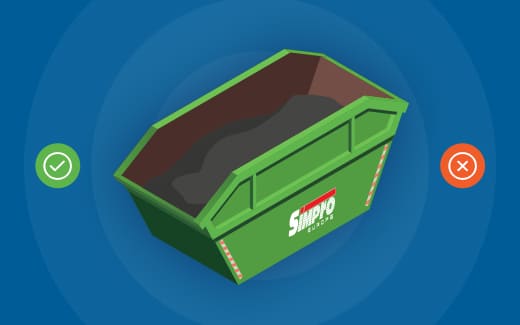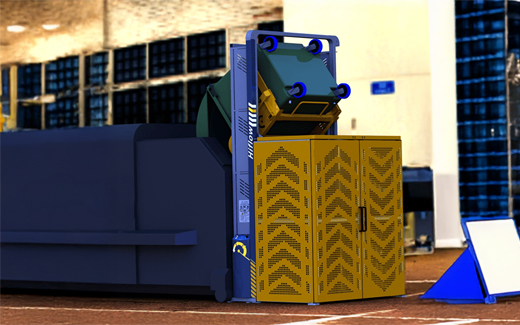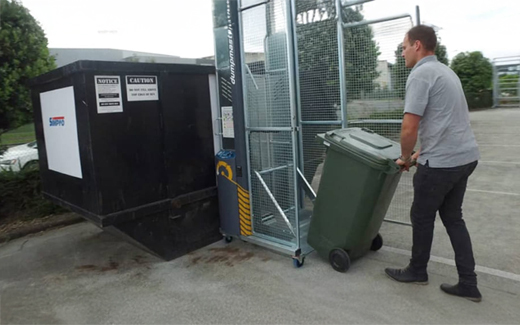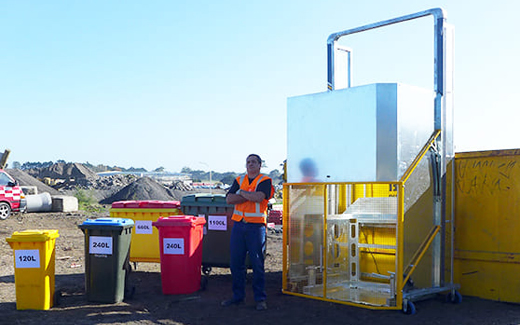Skips are a useful way to dispose of volumes of food waste and rubbish for both businesses and homes. Waste removal workers can simply pick up the skip from the site and dispose of it in one go.
Skips are thus a practical and economical solution for food waste and rubbish management, as well as a safe one. Here are some guidelines to keep in mind when investing in a skip for waste disposal for your business:
Six things to remember
1. Always declare the type and quantity of waste that needs to be disposed of
This will determine the final weight of the rubbish load, the size of the skip needed and the cost to dispose of the waste. Plus, certain types of waste are prohibited from being disposed of in skips (such as biohazards), so it is necessary to clarify this in advance.
Most skip providers will accept the following types of waste:
- General household waste
- Bricks, tiles and concrete
- Clean fill/soil, including dirt and sand and excluding rocks and pebbles
- Steel and aluminum
- Green waste, including garden waste, grass, branches, and so on
2. Be regular with your rubbish tipping
Sort out your waste material according to the categories mentioned above. This will make the waste disposal team’s job easier. Plus, waste needs to be collected and disposed regularly to guard against disease transmission, pollution and exposure to hazardous materials.
Using an appropriate bin lifter will reduce the waste exposure to the waste collection workers as they could tip full bins of rubbish directly into a skip in seconds, thereby eliminating the need for manual contact.
3. Note the weight restrictions of the skip
Discuss the same with your smart lifting solutions provider and what to do in case your load goes above the limit. One option is to sort out the heavy items into different bins to distribute the weight better. Excessive weight may mean your skip is refused or the bin-lifter is damaged.
4. Make the most of your skip load by filling up as much space as possible
Dismantle any furniture or bulky items before putting them in, and place flat items at the bottom of the skip, followed by heavy objects. Avoid air pockets by filling hollow items such as buckets with smaller items and by crushing cardboard and paper.
5. Decide the number of times in a day you will be tipping
If you are only planning to tip food waste and rubbish a few times a day (between 2 and 10), then invest in a bin lifter which comes with an assisted lift facility.
However, for more daily rubbish tips, it is advisable to invest in a hydraulic-powered bin lifter that can tip rubbish all day without human intervention. This also saves the waste collection workers from potential lifting-related injuries.
6. Think about recycling options for specific items
Mention to your waste management provider if any of your waste material is recyclable, like glass or paper. Your provider can make sure that they get recycled at the right facilities. And if you are producing large quantities of food waste, then it would be worth speaking to a company like Waste2es to understand how they can help you to profit from this waste.
7. Implement emergency procedures
Have clear processes in place for any accidents or spills during bin lifting and waste removal. Staff should be trained in these procedures and have access to the necessary equipment to deal with such situations promptly and safely.
Three things to avoid
- Do not put any forbidden materials or undeclared items into the skip. Prohibited items include oils, liquids, paint, asbestos, fibreglass, chemicals, empty chemical containers, gas cylinders, batteries, explosives like fireworks, and other hazardous material. If you suspect that your waste may contain one or more harmful materials, mention it to the waste management team.
- Do not mix up different types of waste. Separate everything according to the categories mentioned earlier on.
- Do not overfill your skips. It makes the bins unsafe to transport, and is also illegal for the waste disposal company to move around. If your waste load comes above the rim of the bin, it may be necessary to move some of it to a second bin.
Wrapping it up
Now that you know how you must manage your skips, invest in a sturdy bin lifter for it will allow you to lift and transport massive loads of rubbish at one go (up to 600 kgs depending on the make and model). This will eliminate the need for multiple rubbish collection trips, introduce the option of using larger collection bins, and reduce overheads.
Gain access to industry-leading lifting and tipping equipment today! Visit our website to see our range of bin lifters. If you want to speak to someone from the team for further information, please contact us.




